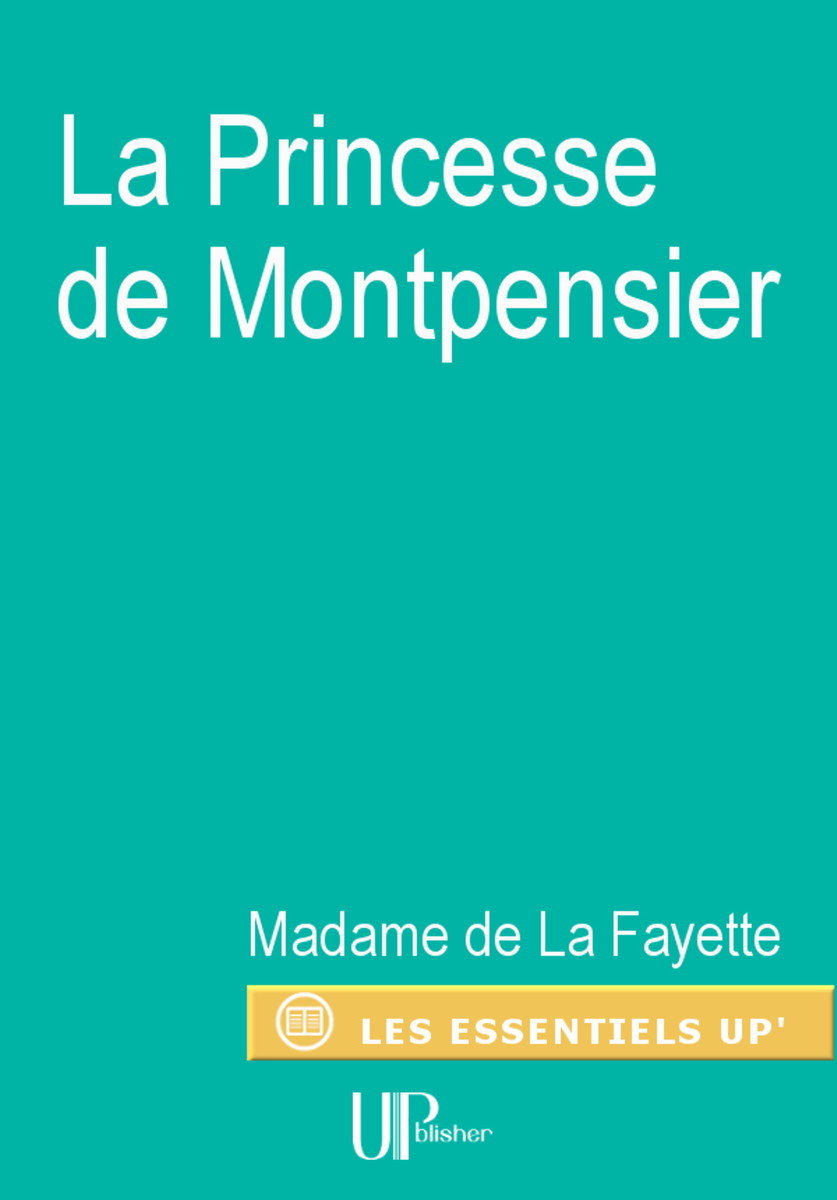La Princesse de Montpensier est une longue nouvelle, publiée anonymement par Madame de La Fayette en 1662
Première Åuvre de l´auteur, d´un genre fort prisé à l´époque, elle connaît un vif succès. Malgré des personnages presque tous historiques, elle relate des « aventures inventées à plaisir », comme avertit le premier éditeur, ce qui enflamme d´autant la curiosité des lecteurs !
En France, dans les années 1560, au début des guerres de religion... Mademoiselle de Mézières, « héritière très considérable » est promise à un duc (Maine), tombe amoureuse d´un autre (Guise), le frère du précédent, et accepte d´en épouser un troisième (le prince de Montpensier). Elle échappe ainsi à son dilemme, mais pénètre dans le champ des meurtrières rivalités politiques et religieuses de deux clans nobiliaires : les Guise et les Bourbon. Un autre duc, le futur Henri III, entre dans la danse et trouble un jeu déjà complexe. Ajoutez un comte, ami intime du mari, lui aussi amoureux de la princesse, éconduit mais ami fidèle de la belle, et le drame peut se jouer.
Malgré toutes les bonnes et mauvaises raisons de ne jamais se revoir, la princesse de Montpensier et le duc de Guise se rencontrent en secret, le mari interrompt l´entrevue, le comte sauve l´honneur de la princesse en perdant le sien... le destin de chacun est désormais scellé.
Avec La Princesse de Montpensier, l´auteur entend montrer les ravages de l´amour sur la vie de celles dont le cÅur guide les pas et rappelle que prudence et vertu mènent plus sûrement au bonheur. Les contemporains y ont vu une mise en garde à la très royale belle-sÅur de Louis XIV, Henriette d´Angleterre, jeune femme mal mariée, convoitée, et amie intime de Mme de La Fayette.
Gentiment moraliste, le vrai talent de Mme de La Fayette réside dans la fine analyse psychologique de ses personnages, qui fait d´elle un précurseur du genre, alliée à un sens aigu du récit et une écriture sans fioriture. Audacieuse, elle dépeint les Grands, non comme modèles, mais comme êtres vibrants, condamnés à osciller entre passion et devoir. Une leçon dont chaque lecteur appréciera la modernité.
Amateurs de belles histoires et d´Histoire, cette princesse n´attend que vous !
EXTRAIT
Le duc d'Anjou en demeura accablé comme d'un coup de tonnerre. Il vit, dans ce moment, qu'il avait un rival aimé. Il comprit, par le nom de Madame, que ce rival était le duc de Guise ; et il ne put douter que la princesse sa sÅur ne fût le sacrifice qui avait rendu la princesse de Montpensier favorable aux vÅux de son rival. La jalousie, le dépit et la rage, se joignant à la haine qu'il avait déjà pour lui, firent dans son âme tout ce qu'on peut imaginer de plus violent, et il eût donné sur l'heure quelque marque sanglante de son désespoir, si la dissimulation, qui lui était naturelle, ne fût venue à son secours, et ne l'eût obligé, par des raisons puissantes, en l'état qu'étaient les choses, à ne rien entreprendre contre le duc de Guise.


